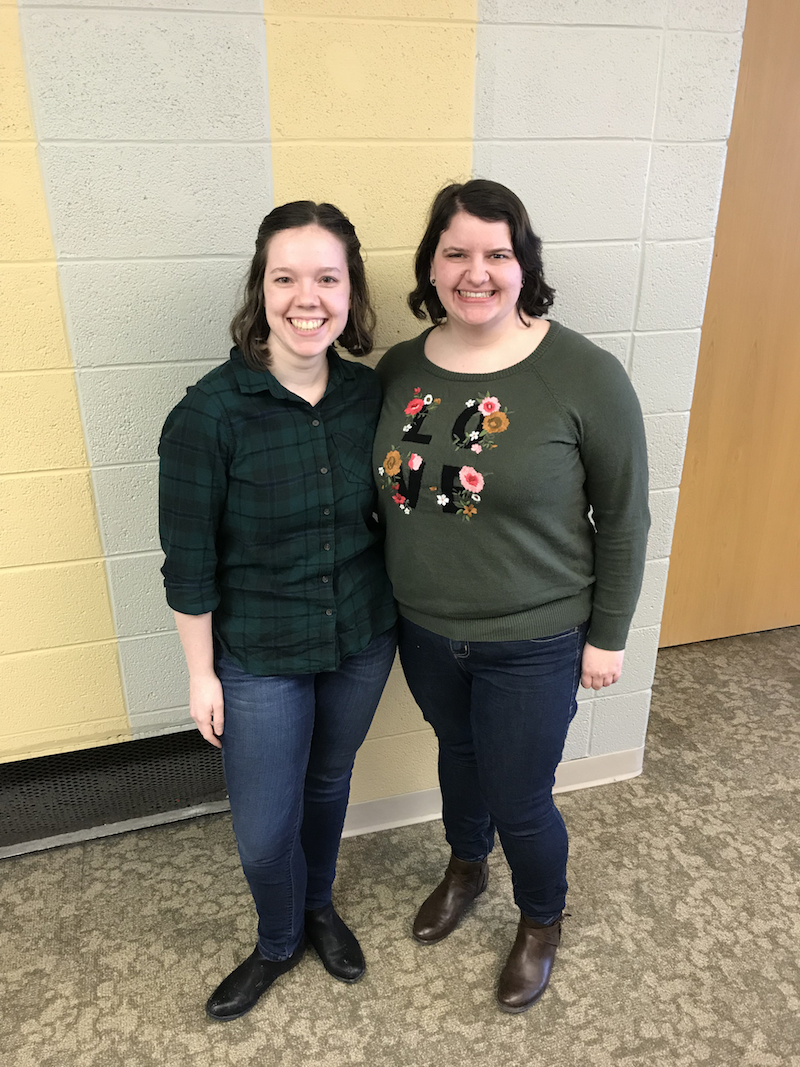A history student is uncovering the agitators of the past
For Alexandrea Penn, there was never a question of if she was going to graduate school. She grew up wanting to be a lawyer and knew that would mean a stint in higher education. But somewhere along the way her dreams changed. Penn figures it happened somewhere between her spending copious amounts of time with her favorite aunt who teaches U.S. history and her summer internship at the Michigan Iron Industry Museum as an undergrad.
“I loved watching the public learn something new,” Penn said. “I loved answering questions and explaining the various whys of history like my aunt had done for me. I fell in love and decided to pursue graduate studies in history. I haven’t really looked back since.”
Penn chose Wayne State at the recommendation of historians she worked with at the museum and went on to earn a dual master’s in history and library and information science and a graduate certificate in archival administration in 2019. Now, she’s pursuing a graduate certificate in nonprofit management, which she expects to complete this spring, and a Ph.D. in history.
Since her inception as a Warrior, Penn has worked as an archivist for a number of different cultural heritage organizations and on several digital map projects. She has been an intern through the WSU Humanities Clinic for the last two semesters and worked with the Detroit Artists Market, Detroit Sound Conservatory, and the Henry Ford Health System. She is currently serving as project coordinator for Pandemic Perspectives, a project initiated by Professor Marsha Richmond, Ph.D., that explores the epidemics and pandemics of the past. And she’s working on a map of Black-owned Detroit businesses, a project born out of an assignment for her class on African American History and Memory taught by Associate Professor Kidada Williams, Ph.D.
During her research for a previous internship, Penn was introduced to the Housewives’ League of Detroit, an organization composed of activist African-American housewives who focused on the promotion of Black-owned businesses within Detroit, Penn said. “Their belief was Black community members should not shop anywhere they could not work.”
The Booker T. Washington Trade Association, their male counterpart, produced The Voice of Negro Business—a publication that shared news on the two orgranizations, issues impacting the Black community and advertisements from Black-owned businesses.
Penn used issues of the publication to compile her map that, once published, will feature more than 800 Black-owned businesses, most of which were lost to “urban renewal,” Penn said. Currently, she’s transferring this data to the software that will allow the public access.
“It highlights the Black communities we are familiar with like Paradise Valley and Black Bottom, but also reveals other communities and neighborhoods we might be less familiar with that were also lost.”
Chasing the heroines of history
Penn largely studies U.S. history after 1865 with an emphasis on labor and gender. “But I would say I love forgotten narratives,” she said. “I chase a lot of breadcrumbs.”
The research means spending long hours sifting through archival collections and documents only to find occasional mentions of heroines who wrecked havoc so those who came after them would have more opportunities, better lives. Penn said it can be hard work. “I say hard in that it can be hard for your soul. I think it can be disheartening sometimes to know the impact a person had but be unable to highlight it because of the gendered nature of their work.”

Much of her research has focused on Michigan’s mining communities.
“I think people do not realize the success and impact of the industries.” The iron industry alone generated more revenue than the Michigan copper and timber industries and the California Gold Rush combined, she said. “The industries encouraged thousands of Europeans to immigrate to the United States and join the mine workforce which created a diverse landscape within the small mining communities of the Upper Peninsula.”
Thanks to funding she recently received through the history department, Penn is currently turning her research on the women activists of the 1913-1914 Keweenaw Copper Strike into a digital story map so she can share the work of these “female agitators” with the public. She will also be presenting her research on this topic on Twitter for the history department’s Otis-Reider Symposium on April 7.
A lifelong learner herself, it may come as little surprise that when Penn is not researching the past, she’s co-hosting a podcast with fellow student Rachel Manela called Students Teaching Students where they interview the scholars of tomorrow. You can listen to the podcast on Stitcher, Apple Podcasts, or on the show’s website: www.studentsteachingstudents.net.